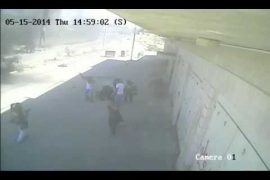This essay, by Danny Ayalon, Israel’s Deputy Minister of Foreign Affairs, was published in The Wall Street Journal.

A couple of years ago, a Palestinian refugee camp was encircled and laid siege to by an army of tanks and Armored Personnel Carriers. Attacks initiated by Palestinian militants triggered an overwhelming response from the army that took the life of almost 500 people, including many civilians. International organizations struggled to send aid to the refugee camps, where the inhabitants were left without basic amenities like electricity and running water. During the conflict, six U.N. personnel were killed when their car was bombed.
Government ministers and spokesmen tried to explain to the international community that the Palestinian militants were backed by Syria and global jihadist elements. Al Qaeda condemned the government and the army, declaring that the attack was part of a “crusade” against their Palestinian brothers.
While most will assume that the events described above took place in the West Bank or Gaza, they actually took place in Lebanon in the summer of 2007, when Palestinian terrorists attacked the Lebanese Army, which struck back with deadly force. The scene of most of the fighting was the Nahr al-Bared refugee camp in Northern Lebanon, which was home to the Islamist Fatah al-Islam, a group that has links with al Qaeda.




